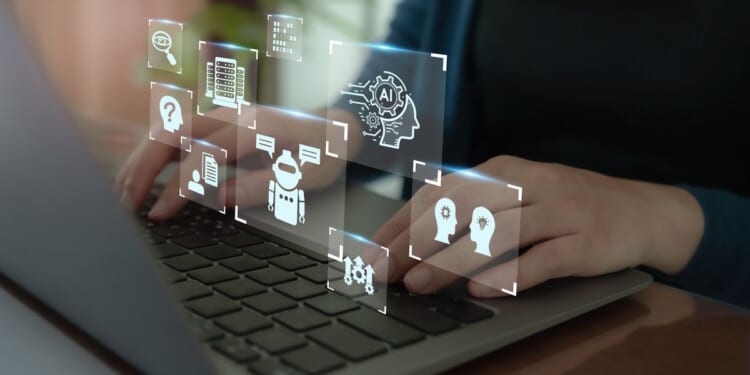
A group of lawmakers led by Senate Majority Leader Charles E. Schumer on Wednesday unveiled a roadmap for Congress to forge new policies for regulating artificial intelligence, previewing requests for billions more dollars of federal spending on tech research.
The new push from Mr. Schumer’s bipartisan working group is intended to guide Senate committees’ shaping individual bills that address concerns about AI risks and safety. The roadmap does not propose specific legislation itself.
The roadmap recommends committees place a priority on challenges such as protecting children online from AI, working to establish a testing and development framework for autonomous vehicles, and considering a ban on AI for various uses such as social scoring, among other things.
“The AI Working Group encourages the executive branch and the Senate Appropriations Committee to continue assessing how to handle ongoing needs for federal investments in AI during the regular order budget and appropriations process, with the goal of reaching as soon as possible the spending level proposed by the National Security Commission on Artificial Intelligence (NSCAI) in their final report: at least $32 billion per year for (non-defense) AI innovation,” the roadmap said.
The multibillion-dollar spending recommendation included in the NSCAI’s final report issued in 2021 called for doubling the amount of government spending on AI development annually, to reach $32 billion by fiscal year 2026.
The commission, created via a 2018 defense bill and chaired by former Google CEO Eric Schmidt, envisioned the money would go to a slew of federal agencies, triple the number of federally funded AI research institutes, and help fund individual researchers and their teams.
The Senate roadmap released by Mr. Schumer, New York Democrat, this week envisions spending on AI that would ultimately exceed NSCAI’s recommendation, which Congress has thus far ignored.
The legislative roadmap is the culmination of several months of insight forums for senators that the Democratic leader helped organize with tech experts and executives, including X’s Elon Musk, Meta’s Mark Zuckerberg, Google’s Sundar Pichai and OpenAI’s Sam Altman. The private gatherings gave senators the opportunity to pick the brains of those with unique knowledge of the cutting-edge technology.
Mr. Schumer teamed up with three other lawmakers to craft comprehensive AI law, including Sen. Martin Heinrich, New Mexico Democrat, and Republican Sens. Todd Young of Indiana and Mike Rounds of South Dakota.
The outlook for a comprehensive bill to govern AI policy within six months of Election Day now appears grim. Mr. Young downplayed the chances that Congress would enact an AI overhaul during remarks last week at an AI expo in Washington.
Asked if Congress would pass a big AI regulatory bill, Mr. Young answered, “Not in the really near term” during his appearance onstage alongside Mr. Heinrich and Mr. Rounds.
The AI roadmap from the senators was careful to avoid telling committees they must adopt the authors’ views on AI policy, but provided encouragement for what Congress ought to do next.
“Committees should reflect on the synergies between AI and other emerging technologies to avoid creating tech silos where the impact of legislation and funding could otherwise be collectively amplified,” the roadmap said. “We hope committees will continue to seek outside input from a variety of stakeholders and experts to inform the best path forward for this quickly advancing technology.”
While Congress considers its next steps, U.S. and Chinese officials are beginning direct conversations that could lead to international standards for AI.
President Biden dispatched a team to meet with Chinese government representatives in Geneva to discuss artificial intelligence risks and safety.
The first meeting between the U.S. and Chinese governments began Tuesday, with an agenda focused on common areas of concern about AI and the respective governments’ approach to tackling domestic problems involving AI.
Ahead of the meeting, a senior Biden administration official told reporters not to expect any “particular deliverables” to result from the first meeting.
The Biden administration said there was no plan for the U.S. and China to discuss technical collaboration or research cooperation on AI, but the U.S. representatives intended to detail their view of the role of international governance of AI, among other things.
The Chinese government advocated for the United Nations to be the main channel of global governance for AI during the meeting, according to a statement from China’s Foreign Ministry.












